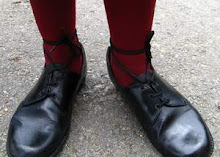Pinyin is the most widely-used system of writing Mandarin Chinese and uses the Latin alphabet. It is a great tool to help you learn the accurate pronunciation of Mandarin words.
First, you need to learn how to read pinyin, as Mandarin contains some sounds which do not exist in English.
Have a look at our guide, listen to the voices in Real Chinese and our tone and character games to hear how native speakers pronounce the sounds.
Don’t worry if you don’t get it right first time, learning pinyin needs a fair bit of practice.
- chá
- - ch in chá, tea, is a bit like ch in 'cheap' but with the mouth in a round shape.
- érzi
- - i as in érzi is very different from i in nǐ hǎo. Say z like ds and then keep the mouth shape unchaged when saying i.
- Gěi nín
- - g in gěi nín, here you are, is pronounced like g in 'girl'.
- The tones
- - In Mandarin Chinese, there are four tones. Each syllable in isolation (e.g. ma) has its tone, and the same syllables with different tones can mean different things. For example, mā with the first tone means 'mum', má with the second tone 'linen', mǎ with the third tone means 'horse' and mà with the fourth tone 'to swear'. The first tone, represented by ¯ , is high but remains level. The second tone, represented by ´, goes up and is abrupt (raise your eyebrows while saying it). The third tone, represented by ˇ, is a falling-rising tone (drop your chin onto your neck and raise it again). The fourth tone, represented by ˋ, is a falling tone (stomp your foot gently).
- nǐ hǎo
- - i in nǐ sounds like ee in 'need'. When a third tone is followed by another third tone, it changes to a second tone in real speech although it is still marked as a third tone. So, nǐ in nǐ hǎo is pronounced with a second tone ní.
- nǚ'ér
- - ü in nǚ'ér, daughter, is like the u sound in French. But when j, q, x and y precede ü, ü is written without the two dots. For example, u in júzi zhī, orange juice, is still pronounced as ü.
- qīngcài
- - q in qīngcài, vegetables, is pronounced a bit like ch in 'cheese', but with the tongue further forward.
- ròu
- - r in ròu, meat, is like r in 'roll' but with the tongue rolled loosely in the middle of the mouth.
- shì
- - sh in shì, to be, and shuō, to speak, is similar to sh in 'shut'.
- xìng
- - There is no sound in English which is similar to the sound x in Chinese. Place the front of your tongue behind the lower front teeth, then let the air pass through. It's a bit like sh in 'sheep'.
- zàijiàn
- - In zàijiàn, goodbye, the sound z is a bit like ds in 'heads' and the sound j is similar to g in 'gentle'.
Programme 1 : Greeting people and saying your name
People are saying greetings.
| Group 1: | Nǐ hǎo! | Hello! | |
| Group 2: | Zàijiàn! | Goodbye! | |
| Group 3: | Zǎoshàng hǎo! | Good morning! | |
| Group 4 | Nǐ zǎo! | Good morning! | |
| Children are saying their name. | |||
| Mu Tong: | Wǒ jiào Mù Tóng. | My name's Mu Tong. | |
| Bao Yuqin: | Wǒ jiào Bāo Yǔqín. | My name's Bao Yuqin. | |
| Sun Yiping: | Wǒ jiào Sūn Yīpíng. | My name's Sun Yiping. | |
| Chen Zhixin: | Wǒ xìng Chén, wǒ jiào Chén Zhìxīn. | My surname is Chen, and my full name is Chen Zhixin. |
| Qian Sainan: | Wǒ xìng Qián, wǒ jiào Qián Sàinán. | My surname is Qian, and my full name is Qian Sainan. |
| Qiyang Yushu: | Wǒ xìng Qíyang, wǒ jiào Qíyáng Yùshū. | My surname is Qiyang, and my full name is Qiyang Yushu. |
| Zhu Bing: | Wǒ xìng Zhū, wǒ jiào Zhūbīng. | My surname is Zhu, and my full name is Zhu Bing. |
| Wang Lanjun: | Wǒ xìng Wáng, wǒ jiào Wáng Lánjūn. | My surname is Wang, and my full name is Wang Lanjun. |
| Zhang Hao: | Wǒ xìng Zhāng, wǒ jiào Zhāng Hào. | My surname is Zhang, and my full name is Zhang Hao. |
| Wang Zhen: | Wǒ xìng Wáng, wǒ jiào Wáng Zhēn. | My surname is Wang, and my full name is Wang Zhen. |
People are saying greetings.
| Group 1: | Jiérì kuàilè! | Happy holiday! |
| Group 2: | Wǎnshàng hǎo! | Good evening! |

ไม่มีความคิดเห็น:
แสดงความคิดเห็น